Leg cramps – those sudden, intense muscle contractions that often strike in the dead of night – can be more than just a passing nuisance. While they can stem from various causes like dehydration, medication side effects, or electrolyte imbalances, recurring leg cramps might signal an underlying issue with your veins. Recent research has shown a significantly higher incidence of nocturnal leg cramps in patients with chronic venous disease compared to healthy individuals.
Muscles, Circulation, and Vein Health
A leg cramp occurs when a muscle involuntarily contracts and fails to relax. While occasional cramps are common, frequent, mainly nocturnal cramps could indicate poor blood circulation, potentially linked to vein disease.
Our arteries deliver oxygen-rich blood and essential nutrients throughout the body. When blood flow is compromised, muscles may struggle to receive adequate oxygen and nourishment, leading to painful contractions. Studies have shown muscle fatigue and impaired venous return, which are common in vein disease, can contribute to nocturnal leg cramps.
Vein disease can disrupt this vital circulatory process. Conditions like deep vein thrombosis (DVT), where a major vein is blocked, or chronic venous insufficiency (CVI), where damaged vein valves allow blood to pool in the legs, can contribute to leg cramps. Research has demonstrated that individuals with chronic venous insufficiency experience not only leg cramps but also other sleep-related movement disorders, underscoring the broader impact of vein disease on sleep and well-being.
Recognizing the Signs of Vein Disease
While visible varicose veins are a telltale sign of vein problems, nocturnal leg cramps can be a red flag even without these outward manifestations. Here’s a quick self-assessment checklist to help you recognize potential signs of vein disease:
- Do you experience frequent leg cramps, especially at night?
- Do your legs feel heavy, achy, or tired, especially after standing for long periods?
- Have you noticed swelling in your legs or ankles?
- Is there any discoloration or hardening of the skin on your legs?
- Do you experience itching or a burning sensation in your legs?
- Have you been diagnosed with restless legs syndrome?
- Do you have visible varicose veins?
If you’ve checked two or more of these boxes, it’s advisable to consult a vascular specialist. They can perform a thorough assessment, including an ultrasound examination, to determine if vein disease is the underlying issue.
Prevention and Treatment
While maintaining a healthy lifestyle with regular, low-impact exercise can help prevent vein disease and reduce the frequency of cramps, seeking professional evaluation is crucial if cramps persist. Here are some steps you can take:
- Stay hydrated: Drink plenty of water throughout the day to support healthy circulation.
- Exercise regularly: Low-impact activities like walking, swimming, or cycling can improve circulation.
- Elevate your legs: To promote blood flow, spend some time each day with your legs elevated above your heart.
- Wear compression stockings: These can help improve circulation in your legs.
- Maintain a healthy weight: Excess weight can put additional pressure on your veins.
A vascular specialist can recommend personalized treatment options, ranging from conservative measures to minimally invasive procedures designed to improve blood flow and alleviate symptoms. Some of these advanced treatments include:
- VenaSeal: A medical adhesive is used to seal off problematic veins, redirecting blood flow to healthier veins.
- Radiofrequency Ablation (RFA): This procedure uses heat to close off damaged veins.
- Sclerotherapy: A solution is injected into smaller varicose veins or spider veins, causing them to collapse and fade.
The Importance of Early Treatment
Untreated vein disease can lead to more severe complications over time. These may include:
- Chronic swelling and pain in the legs
- Skin changes, including discoloration and hardening
- Venous ulcers, which are difficult-to-heal open sores on the legs
- Increased risk of deep vein thrombosis (DVT)
- Decreased mobility and quality of life
Early diagnosis and treatment are key to managing vein disease and preventing these complications. Don’t hesitate to seek help if you suspect a connection between your leg cramps and your vein health.
Don’t Let Leg Cramps Dictate Your Nights
Leg cramps shouldn’t keep you from enjoying restful sleep or a fulfilling life. If you’re experiencing recurring leg cramps, especially at night, it’s time to take action. Contact us to explore potential causes and treatment options. By addressing any underlying vein issues, you can reclaim your comfort and enjoy a more active, pain-free lifestyle.
Disclaimer: This information is for educational purposes only and should not be considered a substitute for professional medical advice. Always consult with a qualified healthcare provider regarding any health concerns or before making any decisions related to your health or treatment.
References
Gervasi, N., Balanos, E., Papia, G., & Menegatti, E. (2023). Incidence of nocturnal leg cramps in patients with chronic venous disease: A case-control study. Phlebology, 38(3), 200-206. https://doi.org/10.1177/02683555221141935
Hallegraeff, J. M., de Greef, M. H., & Krijnen, W. P. (2020). Nocturnal leg cramps and chronic venous insufficiency: Prevalence and association with quality of life. Phlebology, 35(9), 697-703. https://doi.org/10.1177/0268355520926893
Özdemir, Ö. C., Sunam, G. S., & Atar, E. (2017). The association of restless legs syndrome, nocturnal leg cramps, and periodic limb movement during sleep with chronic venous insufficiency. Phlebology, 32(9), 628-633. https://doi.org/10.1177/0268355516687306
Sternlicht, J. C., & Pascoe, D. D. (2023). Muscle fatigue and venous insufficiency as risk factors for nocturnal leg cramps: A systematic review. Journal of Vascular Surgery: Venous and Lymphatic Disorders, 11(2), 411-418. https://doi.org/10.1016/j.jvsv.2022.10.020
Yamaki, T., Konoeda, H., Osada, A., Hamahata, A., & Sakurai, H. (2019). Chronic venous disease and its impact on muscle metabolism and function. Annals of Vascular Diseases, 12(2), 157-163. https://doi.org/10.3400/avd.ra.19-00060

